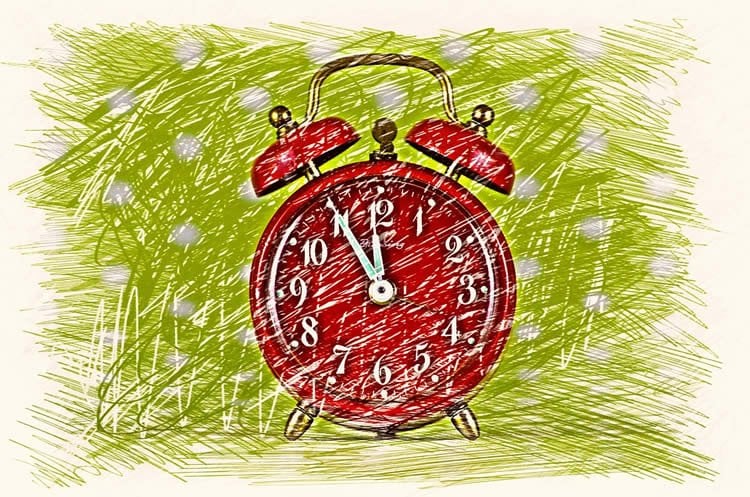Summary: A new study reveals people are suffering dream deprivation as a result of being deprived of REM sleep. Researchers report dreams are essential for memory and mental health. Dream deprivation can lead to an increased risk of depression and illness.
Source: University of Arizona Health Sciences.
A silent epidemic of dream loss is at the root of many of the health concerns attributed to sleep loss, according to Rubin Naiman, PhD, a sleep and dream specialist at the University of Arizona Center for Integrative Medicine, who recently published a comprehensive review of data.
His review, “Dreamless: the silent epidemic of REM sleep loss” in the “Unlocking the Unconscious: Exploring the Undiscovered Self” issue of the Annals of the New York Academy of Sciences, details the various factors that cause rapid eye movement (REM) sleep and dream loss. Typical sleep follows a pattern in which deeper, non-REM sleep is prioritized by the body. Only later in the night and into the early morning do people experience dreaming, during REM sleep.
“We are at least as dream-deprived as we are sleep-deprived,” noted Dr. Naiman, UA clinical assistant professor of medicine. He sees REM/dream loss as an unrecognized public health hazard that silently wreaks havoc by contributing to illness, depression and an erosion of consciousness. “Many of our health concerns attributed to sleep loss actually result from REM sleep deprivation.”

The review examines data about the causes and extent of REM/dream loss associated with medications, substance use disorders, sleep disorders and behavioral and lifestyle factors. Dr. Naiman further reviews the consequences of REM/dream loss and concludes with recommendations for restoring healthy REM sleep and dreaming.
Source: Keith LaBaw – University of Arizona Health Sciences
Image Source: NeuroscienceNews.com image is in the public domain.
Original Research: Abstract for “Dreamless: the silent epidemic of REM sleep loss” by Rubin Naiman in Annals of the New York Academy of Sciences. Published online August 15 2017 doi:10.1111/nyas.13447
[cbtabs][cbtab title=”MLA”]University of Arizona Health Sciences “Unrecognized Health Hazard of Sleep Loss: An Epidemic of Dream Deprivation.” NeuroscienceNews. NeuroscienceNews, 29 September 2017.
<https://neurosciencenews.com/dream-deprivation-sleep-loss-7619/>.[/cbtab][cbtab title=”APA”]University of Arizona Health Sciences (2017, September 29). Unrecognized Health Hazard of Sleep Loss: An Epidemic of Dream Deprivation. NeuroscienceNews. Retrieved September 29, 2017 from https://neurosciencenews.com/dream-deprivation-sleep-loss-7619/[/cbtab][cbtab title=”Chicago”]University of Arizona Health Sciences “Unrecognized Health Hazard of Sleep Loss: An Epidemic of Dream Deprivation.” https://neurosciencenews.com/dream-deprivation-sleep-loss-7619/ (accessed September 29, 2017).[/cbtab][/cbtabs]
Abstract
Dreamless: the silent epidemic of REM sleep loss
We are at least as dream deprived as we are sleep deprived. Many of the health concerns attributed to sleep loss result from a silent epidemic of REM sleep deprivation. REM/dream loss is an unrecognized public health hazard that silently wreaks havoc with our lives, contributing to illness, depression, and an erosion of consciousness. This paper compiles data about the causes and extent of REM/dream loss associated with commonly used medications, endemic substance use disorders, rampant sleep disorders, and behavioral and lifestyle factors. It examines the consequences of REM/dream loss and concludes with recommendations for restoring healthy REM/dreaming.
“Dreamless: the silent epidemic of REM sleep loss” by Rubin Naiman in Annals of the New York Academy of Sciences. Published online August 15 2017 doi:10.1111/nyas.13447







